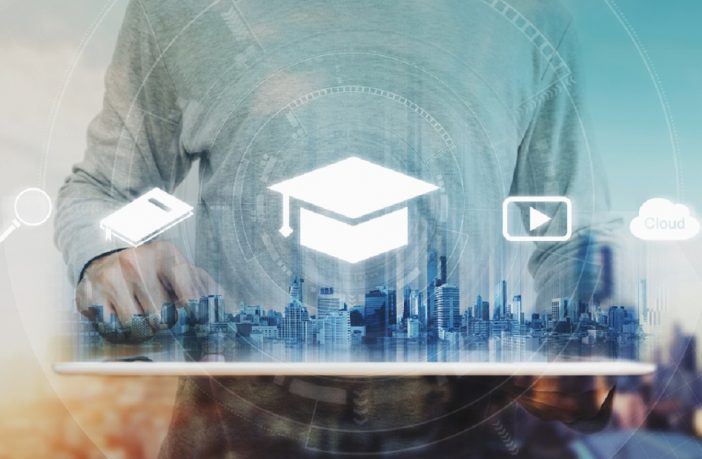Brain-to-brain learning could be a reality by 2070, according to The Open University’s Future of Learning 2070: Imagine What’s Next report. The findings, which have been released today to mark 50 years of learning with The Open University, predict that artificial intelligence and full sensory virtual experiences could become commonplace for the students of tomorrow – helping to make learning even more accessible and flexible.
A new way to transfer knowledge
Among the predictions by leading OU academics in the fields of science, technology, engineering and mathematics, are that in just 25 years students will be able to transfer knowledge from one brain to another. “Within 50 years, it is possible that highly complex and abstract concepts are transmissible via brain-to-brain learning,” says John Domingue, Director of the Knowledge Media Institute at The Open University. This could mean that the ability to understand a new language or play a musical instrument could be easily passed by person to person.
Virtual reality – but not as we know it
Recognising that the most important aspect of learning will always be ‘doing’, the report predicts that virtual reality will become infinitely better – allowing remote users a much more immersive experience than it currently does. “We will develop methods where learning from touch and taste and smell are as important as sight and sound,” says Monica Grady, Professor of Planetary and Space Science. “Our horizons will expand – beyond the boundaries of the Earth – so that we can take advantage of the zero gravity environment of low Earth orbit and the reduced gravity of the Moon as additional laboratories.”
Just the beginning
Mary Kellett, the Vice Chancellor of the Open University said:
“Technology continues to revolutionise the way we learn; from anticipating the needs of learners through AI, to technology platforms that open up learning to everyone. At The Open University we have always been at the forefront of innovation, with some of the future’s brightest minds leading the way.
We’re constantly exploring new technologies to help us move forward in line with some of the advances detailed in this report and, while we are proud of our achievements over the past 50 years, they are just the beginning. We’re incredibly excited for a future where new technologies help widen participation and make education open to all.”
Download The Open University Future of Learning 2070: ‘Imagine What’s Next’ report to take a glimpse into the future.
Guest Author: Carly Sumner

Carly Sumner is a Digital Content Officer in the Development Office at The Open University. She loves telling stories and has spent the past 10 years writing about everything from nappy bags to balance transfers. She holds a BA (Hons) in Journalism and Media Studies from Coventry University. When she’s not writing, Carly enjoys reading, sharing good food with great people, and all things colourful.



